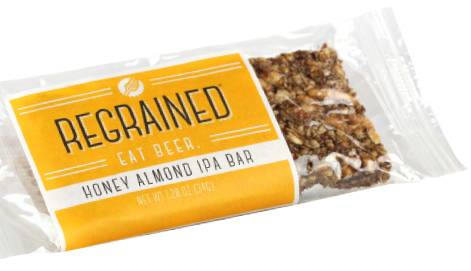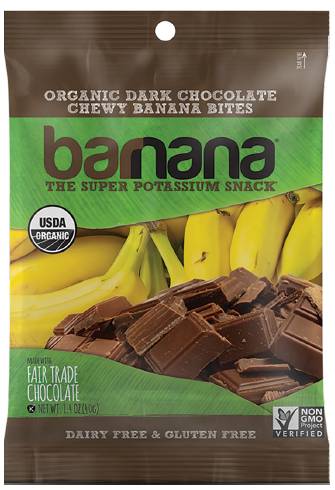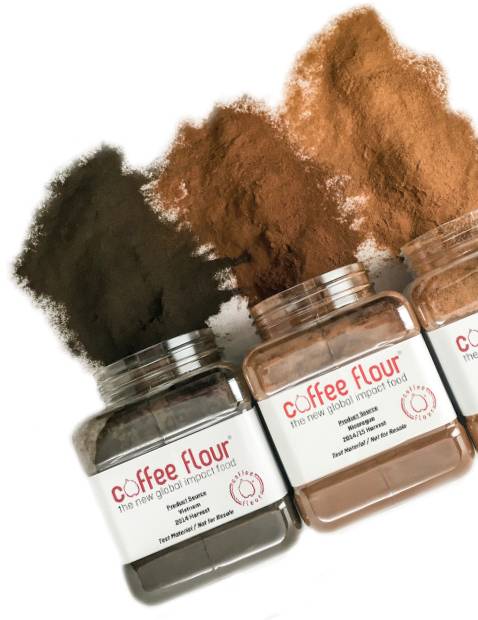
REGRAINED
>> San Francisco, CA
>> Founded 2013
>> 4 employees
The US beer industry uses more than 6 billion pounds of grain every year, but only a small fraction of those ingredients end up in the beer itself. ReGrained’s mission is to help urban craft breweries make better use of that brewing process by-product. The company “harvests” used grain from breweries to create energy bars — but that’s just the start of its vision. The company is also partnering with the US Department of Agriculture to conduct research on how best to scale their operations to find other productive uses for that grain. “There have been local examples of brewpubs and bakeries using grain left behind from beer production to enrich breads, crusts, cookies, and those types of things, but this has all been at a small scale,” says co-founder Dan Kurzrock. “We’re trying to build a platform between the urban brewing industry and local food systems.”
FOUNDER’S TIPS: “For your food to be successful beyond the novelty of a great idea, it actually needs to taste great,” Kurzrock says. “We need to make the right thing the easy thing for people.”

BARNANA
>> Santa Monica, CA
>> Founded 2012
>> 25 employees
Bananas are the most wasted food product in the world, and organic banana farmers lose up to 20 percent of their yield simply because it cannot be sold when the fruit is, to be blunt, ugly. Organic snack-maker Barnana buys bruised, scuffed, or overripe bananas from farmers in Latin America and turns them into high-energy dehydrated snacks. The company upcycled 11.7 million bananas in 2016.
FOUNDERS’ TIPS: “One of the hardest things for us was to find partners that not only share in our vision to end food waste on banana farms but also possess the capabilities to scale with our rapid growth,” says Barnana co-founder and CEO Caue Suplicy.Co-founder and CMO Nik Ingersoll’s advice to future supply chain pioneers: “Diversify, diversify, diversify your sources, and do it early.”

COFFEE FLOUR
>> Seattle, WA
>> Founded 2014
>> 20 employees
Every coffee bean that goes into brewing every cup of coffee in the world grows surrounded by an outer layer of fruity pulp called a “coffee cherry.” Until recently, producers left coffee cherries to rot in piles as they processed and exported the beans. But since 2014, Coffee Flour has been turning the pulp from cherries into a high-protein, high-fiber, gluten-free flour that can be used in baked goods, chocolates, energy bars, hot cereals, and more. To date, the company has removed 38 million pounds of coffee pulp waste from farms in 8 countries via its 23 mills, creating a new revenue steam for farming communities.
FOUNDER’S TIPS: “The hardest part of creating a new supply, for us, was convincing the coffee mill operators to treat the pulp waste with the same regard given to the green beans,” says Coffee Flour founder Dan Belliveau. “Don’t assume you figured it all out at the start, and know that you will need to be flexible and patient and adjust accordingly. Also, make sure you take the time to consult and listen to those who are in the field every day. They will be your best allies and will be key to any successful supply chain.”



